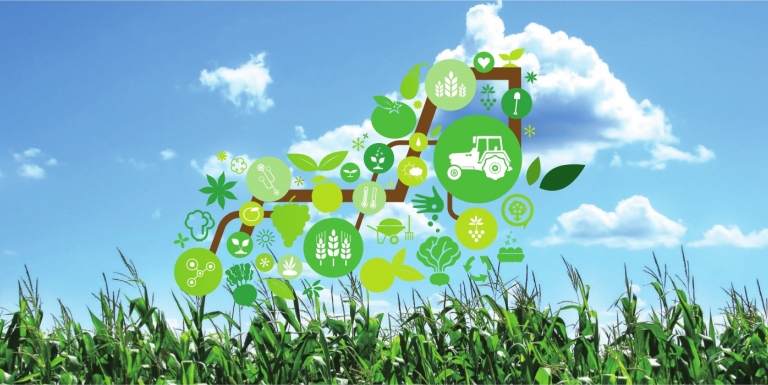Cultivation Solutions : The future of farming is on the cloud
Farming for the most of the late century has depended on external factors like weather conditions, availability of rain, pest attacks etc. but the scenario is now changing with modern AI tech innovations coming to rescue. Technologies like Cloud Machine Learning, Artificial Intelligence (AI), Satellite Imagery and advanced analytics are helping small farmers in increasing their ROI with better crop yield and greater price control.
Indian Government is targeting to double the farmers’ income by 2022 thus promoting the need for improvements in irrigation techniques, introduction and effective use of new Cloud-enabled AI technologies, and better power and fertiliser subsidies.
Farmers from villages in Maharashtra, Telangana and Madhya Pradesh are already receiving voice calls or text messages informing them about crop health risks, pest attacks as per weather conditions and the growth stage. State governments are receiving price estimates three months in advance helping them to plan an MSP (Minimum Support Price).
AI is changing the Game
Under Microsoft and ICRISAT’s Intelligent Cloud pilot a new Sowing Application for farmers combined with a Personalized Village Advisory Dashboard was developed for Andhra Pradesh, the results were astounding showing a 30% higher yield per hectare. The primary objective behind developing the Sowing App was to aid farmers in achieving optimal harvests by informing the best time to sow seeds. This data is based on collected information of weather conditions, soil and other indicators.
“Sowing date is significant in ensuring a good harvest for the farmers, as failing to meet these dates will result in a great loss because seeds and fertilisers are expensive investments.”
– Dr Suhas P. Wani, Director, Asia Region, ICRISAT
Various studies are being carried out that show digital farming and connected farm services can impact 70 million Indian farmers in 2020, thus adding around $9 billion to farmer incomes annually.
Agricultural companies have significantly harnessed the power of the cloud to create intelligent solutions. Factors such as adoption of AI in cattle face recognition, crop health monitoring and utilising IoT sensors for fully-automated irrigation systems will prove pivotal in driving the development for global AI in agriculture market growth in coming years.
Globally Artificial Intelligence in agriculture accounted for $240 million in 2017. It is expected to reach 1100 million by 2025 and reach a CAGR (Compound Annual Growth Rate) of 20.8 percent during 2018-2025. Thus introducing programs to increase digital literacy for the rural populace can prove beneficial, improving farmer incomes in the near future.
AI technology in Agriculture Market is segmented in crop and soil management, and animal husbandry. Cloud computing is being used to collect and assess data from satellite images, soil sensors, and weather stations to help farmers in better crop management. The analytic capabilities of cloud help farmers in getting a better understanding of production environments.
Various models comprising of market price movements in past years can now predict future price movements that will help reduce farmers distress.
Various AI models can now store moisture requirements that are crop specific and at the same time assess the moisture on the fields with satellites. They can also provide alerts about water requirements for farmers through text messages with the help of auto-irrigation.
Providing a pragmatic assessment of the market, demand and supply, crop competition and regional crop planning is also possible with the use of AI.
The technology is capable of detecting soil health abnormalities, and this data can be later sent to agricultural drones or robots for aerial spraying for pesticides. The use of AI in spraying pesticides is additionally curtailing the spraying cost to more than 50% by controlling the used amount of pesticides.
AI can assist farmers of all sizes in improving crop yield and crop quality by analysing and correlating a large amount of structured and unstructured data from multiple sources to extract actionable insights for enhancing yield.
All this data gathered on the soil, the plants and the weather for the growing season are generating way more information to process traditionally. Cloud provides enough computing power, storage and speed to analyse this plethora of data and make it usable for the farmers. If the data is processed on time, it will allow farmers to take actions on time to prevent issues which otherwise cause terrible losses and improve their yield in quality and quantity.
All this is only effective when data Collection on the cloud happens in real-time. The Governments needs to aid rural areas with better internet connectivity and speeds to make Cloud technology a viable option for Indian Farmers.
The cloud is very promising, and it will change the way we do farming. It makes aggregating, analysing, and sharing data across farms around the world very easy. Cloud-enabled AI Farming will drastically increase agricultural profitability and improve the quality of food production.
- Discover How: IoT Drives the Future of Banking & Financial Industry - August 24, 2020
- SD-WAN Securing Dynamic Networks - June 10, 2020
- How Secure is Serverless Computing? - April 26, 2019


